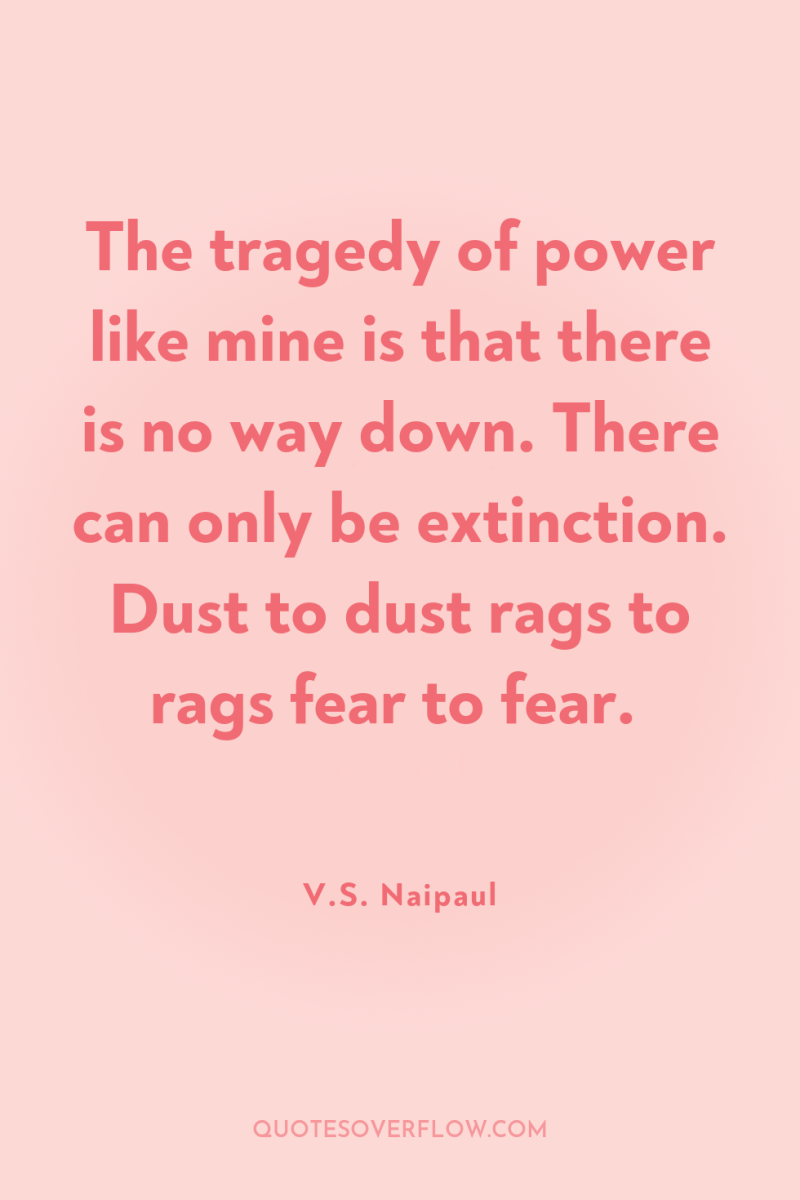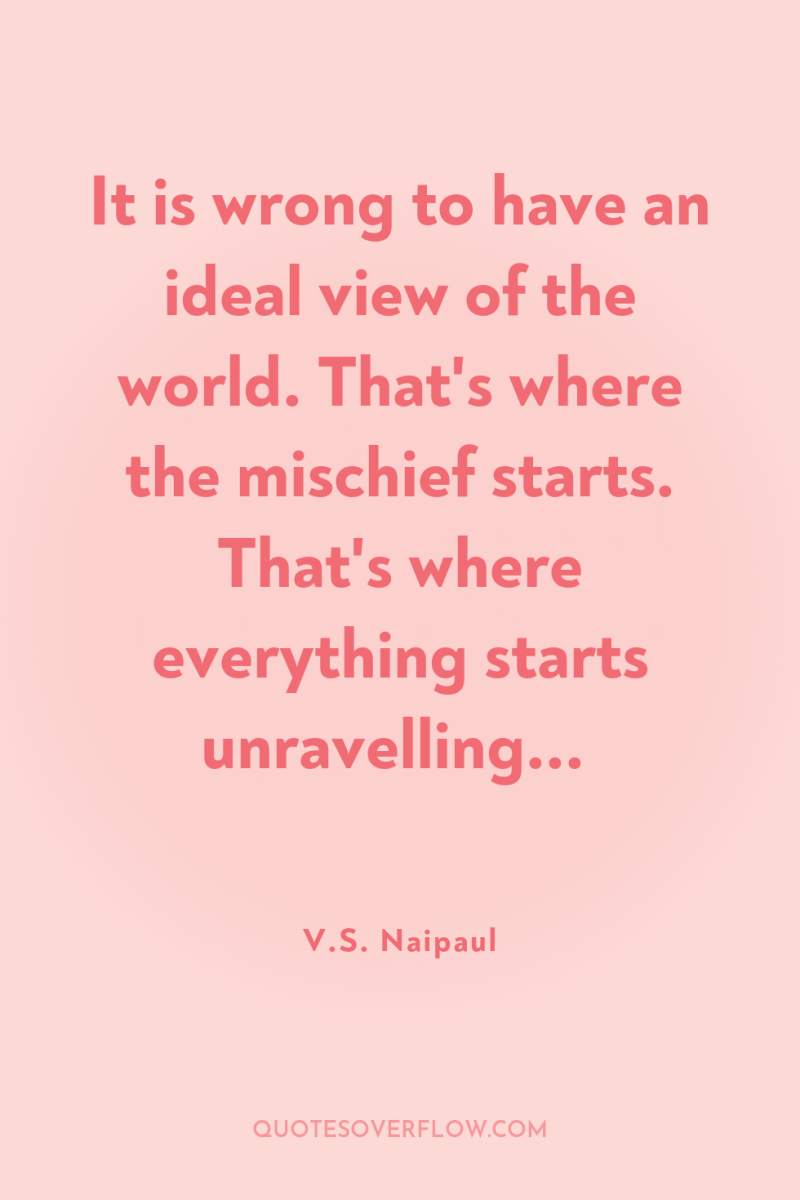
1
The tragedy of power like mine is that there is no way down. There can only be extinction. Dust to dust rags to rags fear to fear.V.S. Naipaul
2
I liked to feel I had to do things perfectly; I felt I was earning my freedom. Though I was in hiding, and though I worked every day until midnight, I felt I was much more in charge of myself than I had ever been.V.S. Naipaul

3
It is wrong to have an ideal view of the world. That's where the mischief starts. That's where everything starts unravelling...V.S. Naipaul
4
Small things start us in new ways of thinkingV.S. Naipaul
5
And that luck was only fate's cheating, giving an illusion of power. But that illusion lingered, and I became restless. I decided to act, to challenge fate. (...) I gained courage; every afternoon I walked a little farther. And one day I got there.V.S. Naipaul
6
What matters in the end in literature, what is always there, is the truly good. And -- though played out forms can throw up miraculous sports like The Importance of Being Earnest or Decline and Fall-- what is good is always what is new, in both form and content. What is good forgets whatever models it might have had, and is unexpected; we have to catch it on the wing. ((p. 62, Reading & Writing)V.S. Naipaul
7
It was a light which gave solidity to everything and drew colour out from the heart of objects.V.S. Naipaul
8
A businessman is someone who buys at ten and is happy to get out at twelve. The other kind of man buys at ten, sees it rise to eighteen and does nothing. He is waiting for it to get to twenty. The beauty of numbers. When it drops to ten again he waits for it to get back to eighteen. When it drops to two he waits for it to get back to ten. Well, it gets back there. But he has wasted a quarter of his life. And all he's got out of his money is a little mathematical excitement.V.S. Naipaul
9
A complying memory has obliterated many of them and edited my childhood down to a brief cinematic blur.V.S. Naipaul
10
Paradise seemed further away than India, but Hell had become a bit closerV.S. Naipaul
11
...Anand, look at the back of my hands. No hair. The sign of an advanced race, boy. And look at yours. No hair either. But you never know. With some of your mother's bad blood flowing in your veins you could wake up one morning and find yourself hairy like a monkeyV.S. Naipaul
12
How we flounder when emotion overtakes us.V.S. Naipaul
13
I could meet dreadful people and end up seeing the world through their eyes, seeing their frailties, their needs. You refer to yourself in order to understand other people. That's the novelist's gift, isn't it?V.S. Naipaul
14
To go back home was to play with impressions in this way, the way I played with the first pair of glasses I had, looking at a world now sharp and small and not quite real, now standard in size and real but blurred.V.S. Naipaul
15
The world is what it is; men who are nothing, who allow themselves to become nothing, have no place in it.V.S. Naipaul
16
Certain emotions bridge the years and link unlikely places.V.S. Naipaul
17
Most people are not really free. They are confined by the niche in the world that they carve out for themselves. They limit themselves to fewer possibilities by the narrowness of their vision.V.S. Naipaul
18
The chaos lies all within.V.S. Naipaul
19
For years and years, even during the time of my first visit in 1962, it has been said that Calcutta was dying, that its port was silting up, its antiquated industry declining, but Calcutta hadn't died. It hadn't done much, but it had gone on; and it had begun to appear that the prophecy has been excessive. Now it occurred to me that perhaps this was what happened when cities died. They don't die with a bang; they didn't die only when they were abandoned. Perhaps, they died like this: when everybody was suffering, when transport was so hard that working people gave up jobs they needed because the fear the suffering of the travel; When no one had clean water or air; No one could go walking. Perhaps city died when they lost amenities that cities provided, the visual excitement, the heightened sense of human possibility, and became simply places where there were too many people, and people suffered.V.S. Naipaul